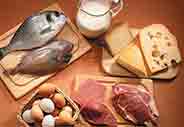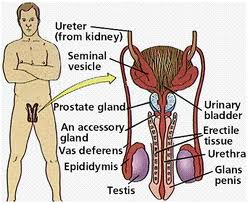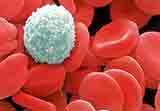|
Want to know all about ZincAn Essential Trace Element for Your Health
Zinc is a trace element that is essential for human health. Not only is this mineral an antioxidant, but it helps our digestive system as well as producing certain hormones such as testosterone and growth hormones. This mineral also has a major role in cell division and growth, protein synthesis, wound healing. Besides regulating the normal sense of taste and smell, zinc plays a role in maintaining a healthy and strong immune system and in skin and bone growth as well as sexual maturation. It is also important for healthy skin as is reduce the symptoms of eye problems, acne, eczema, psoriasis and tinnitus. Additionally it isreported o have a role in insulin and pancreatic function and liver activity. “A study conducted at Harvard University seems to show that taking this mineral may stimulate the pancreas therefore helping control diabetes” .
Critical for the male reproductive system
Zinc is critical for the proper functioning of the male reproductive system as it can affect normal sperm count, regulation of testosterone levels and sex drive as well as being a component of the prostate gland and semen. For this reason, men generally require more than women. Furthermore, this mineral has the potential to enhance fertility in both men and women and having beneficial effects on thyroid and sex hormones. Because this substance is a component of over 300 enzymes, it in involved in the metabolism of lipids, carbohydrates and proteins, all of which are important in maintaining good health.
Important for the Immune System
This mineral is an important part of the immune system as it is used to produce and trigger certain white blood cells (T-cells) which fight off infections. This is particularly the case with infections, common colds and the flu. Taking this nutrient can sometimes even reduce the length of a cold. Our “body contains 2-3 g of zinc” this is broken down as 60% is located in the muscle, 30% in bone and 5% in the skin.
The Importance of Our Daily DoseBecause we are talking about a trace mineral which our bodies do not produce, it is important to make sure that our daily intake is high enough. The current RDA recommendation is 15 mg. The substance is generally found in both animal and plant sources, although it is richest in animal food sources. Some natural sources of this essential mineral are high protein foods such as red meat and poultry, seafood, seeds (especially pumpkin), beans, fortified cereals, wheat germ, oatmeal, nuts, bran flakes, some cheeses and milk. More information is given in table 1, below. TABLE 1 Food Sources of Zinc Chickpeas (200g or 7oz) 2.8mg Baked beans (225g or 8oz) 1.6mg 1 Vegeburger (100g or 3.5oz) 1.6mg Pumpkin seeds (20g or 2/3oz) 1.3mg Muesli (60g or 2.25oz) 1.3mg Cheddar cheese (30g or 1oz) 1.2mg Tahini paste (20g or 2/3oz) 1.1mg 1 Fruit yoghurt (150g or 5.25oz) 0.9mg Dried yeast (10g or 1/3oz) 0.8mg Whole meal bread (40g or 1.5oz) 0.8mg
Supplementation interferes with the absorption of many other minerals, especially copper, which can lead to copper deficiency. Moreover, long term use of 100mg a day will have negative effects such as the decrease in HDL (good) cholesterol and increase LDL (bad) cholesterol. It is equally important to not take supplemental zinc unless you have an actual deficiency as this can lead to toxicity. This kind of overdose includes symptoms such as nausea, vomiting and diarrhea. However, a deficiency can also be serious as it can result in poor wound healing, skin problems (such as eczema, acne and psoriasis), weakened immune system, taste impairment, low sperm count for men, poor appetite, fatigue and decrease in growth rate. The key to avoiding both overdose and deficiency is to intake the recommended amount, which can be established by a physician or the RDA IF you want to age well, make sure you get adequate amounts of this trace element in your daily diet. At the same time make sure you don't overdose by following the RDA recommendations or that of your health authority.
Top of Zinc |
||||||||||||||||||||||
Translate this Site
Search This Site
Loading
Subscribe to E-Zine
Support this Site
|
Holiday SpecialsFor Holiday Specials at Amazon, Click Here
|
| |||||





